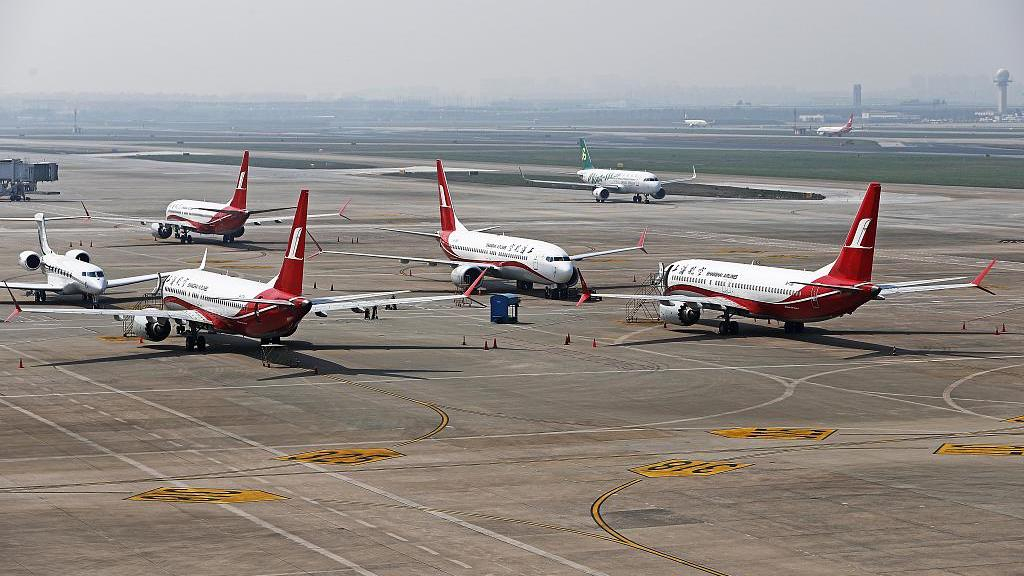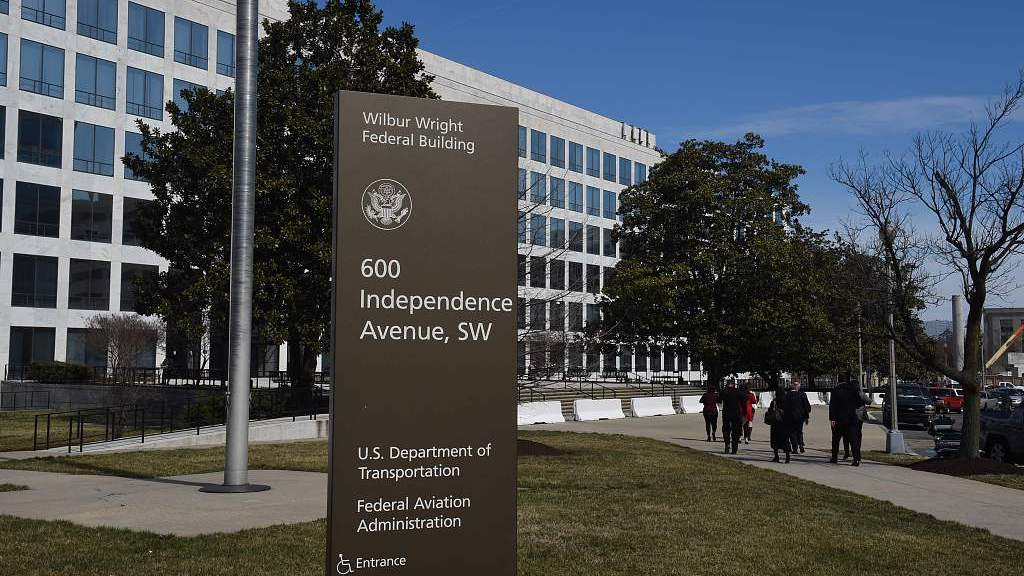
TV Show
09:49, 12-Apr-2019
China's 'leadership' in travel safety and FAA's fall from grace
The Point with Liu Xin
01:29

"China's had an excellent safety record both with airlines and also with high-speed trains," current affairs commentator Einar Tangen said in praising the country's role in international aviation.
"This is another area where you see China taking a leadership role despite all of the continued background noise internationally that China is not a good player."
China's civil aviation regulator was the first to suspend commercial operations of all Boeing 737 Max 8 airplanes after a crash in Ethiopia. The incident, killing all 157 people aboard, follows another deadly incident involving Indonesia's Lion Air in October 2018.
China is the world's biggest user of Boeing and one of its biggest airlines China Eastern Airlines has joined the list of carriers seeking compensation from Boeing Co. Experts believe that China has shown leadership in travel safety while the U.S. Federal Aviation Administration (FAA) has fallen from being firmly in charge to "one out of several equal aviation authorities."
Tangen added that China looks like it was acting for the best interests of its people.

China's Ministry of Emergency Management office in Beijing, China, November 18, 2018. / VCG Photo
China's Ministry of Emergency Management office in Beijing, China, November 18, 2018. / VCG Photo
In April 2018, China established a new Ministry of Emergency Management to help integrate China's scattered disaster-relief resources. Tangen believes that China is taking a very proactive stance on disaster prevention that is being noticed.
Professor Henrich Greve of the Rudolf Valeria Maag INSEAD Centre for Entrepreneurship cited two keywords – "responsibility" and "trust" – in explaining why it only took 19 hours for the Chinese authorities to react after the Ethiopian crash.
"Responsibility as any civil aviation authority has for the security of the people in the air and on the ground. Trust in their judgment that they were capable of seeing just how dangerous the situation was, and they could take action," he explained.
00:58

Greve also sees a message of distrust in what other authorities such as the FAA had to do with the case. The FAA waited for three days to ground the 737 MAX fleet and was one of the last major regulators worldwide to do so.
Greve rejected the notion that Beijing had political motives for grounding the plane, and said there's a clear technical case in favor of grounding these aircraft for security reasons.
"It's a realization of how the expertise and the decisiveness have moved among the different regulatory agencies," he said. "The old model would have been that the FAA would be firmly in charge because they were, in fact, the ones with the most knowledge and expertise. Other aviation authorities would follow. Now we've seen the FAA move as one of the last."
When asked about whether there's a conflict of interests between Boeing and FAA, Greve suggested that even though for planes, safety and profitability are both crucial, there shouldn't be any conflict of interest. In the long term.
The U.S. agencies established the Organization Designation Authorization program in 2005, granting the authority of safety-certification work to certain Boeing employees.
"An independent assessment over product would mean that any mistakes made in your organization, any shortcuts, there will be somebody outside independently assessing and certifying them, making sure that everything is okay."
However, in the short term, Boeing sees FAA oversight as a costly inconvenience. And the company has been able to persuade regulators to be laxer on the checking than one would normally expect.
Greve sees that this has led to the FAA falling from the leadership position to being more at equals with Chinese, Canadian, and other aviation authorities.
Boeing began developing plans for the 737 Max in 2012 to compete with Airbus's A320 neo plane. It manufactured the first 737 Max 8 in November 2015. And its final FAA certification was completed on March 9, 2017. It was reported that Boeing engineers were asked to complete designs at twice the usual pace.
(If you want to contribute and have specific expertise, please contact us at opinions@cgtn.com.)

SITEMAP
Copyright © 2018 CGTN. Beijing ICP prepared NO.16065310-3
Copyright © 2018 CGTN. Beijing ICP prepared NO.16065310-3